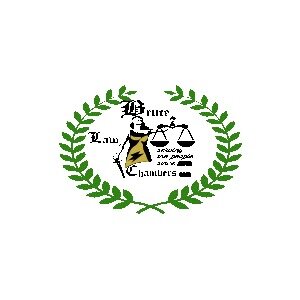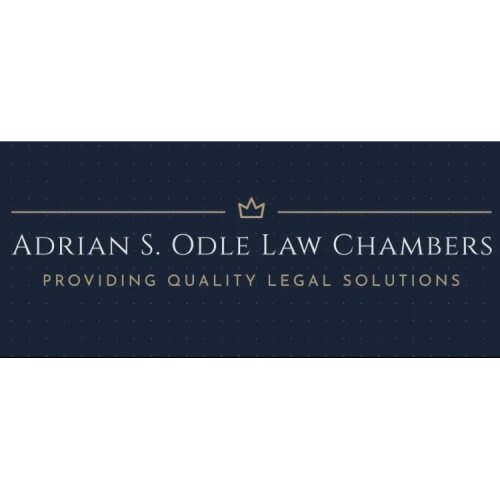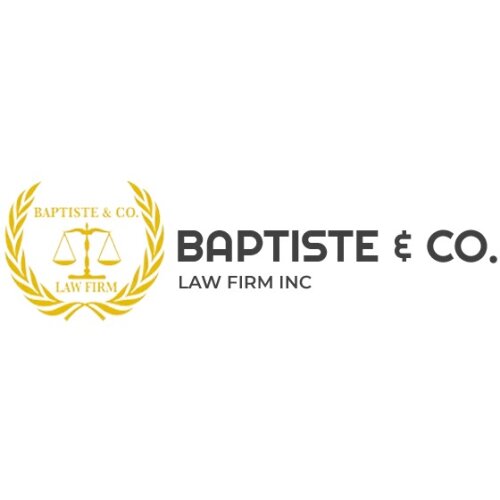Best Mining Law Lawyers in Saint Vincent and the Grenadines
Share your needs with us, get contacted by law firms.
Free. Takes 2 min.
Or refine your search by selecting a city:
List of the best lawyers in Saint Vincent and the Grenadines
About Mining Law in Saint Vincent and the Grenadines
Mining Law in Saint Vincent and the Grenadines governs the exploration, extraction, and management of mineral resources such as sand, gravel, stone, and other natural deposits. The sector is primarily regulated by the Minerals (Vesting) Act and other government policies designed to oversee sustainable mineral exploitation and protect the environment. Mining activities are closely monitored by the authorities to ensure compliance with local laws and regulations, which are meant to balance economic benefits with environmental protection and community interests.
Why You May Need a Lawyer
Engaging in mining activities, whether on a small or large scale, involves numerous legal obligations and compliance requirements. A lawyer with expertise in Mining Law can help you navigate complex processes such as applying for mining licenses, negotiating land access agreements, ensuring environmental compliance, and addressing disputes. Common situations where legal assistance is vital include seeking permits or concessions, handling disputes with landowners or the government, addressing environmental or labor law breaches, and negotiating contracts with investors or suppliers. Whether you are an individual prospector, a mining company, or a landowner, specialized legal guidance can help you avoid costly mistakes and protect your interests.
Local Laws Overview
Mining activity in Saint Vincent and the Grenadines is primarily regulated through the following legislative frameworks:
- Minerals (Vesting) Act: Vests ownership of minerals found within the territory in the state and governs their extraction, sale, and use. The Act requires individuals or companies to obtain licenses or leases before carrying out mining operations.
- Environmental Management Regulations: All mining operations must adhere to rules designed to protect the environment. This includes obtaining environmental impact assessments and following specific procedures for waste disposal, land rehabilitation, and water resource management.
- Land Use and Planning Laws: Mining projects must comply with general land use planning requirements and obtain the necessary approvals from relevant governmental agencies.
- Health and Safety Regulations: Operators are required to ensure safe working conditions for all workers involved in mining activities by following prescribed health and safety measures.
- Licensing and Royalties: Specific types of licenses and permits are mandatory depending on the scale and type of mining. The government may also impose royalties or fees on extracted minerals.
Government oversight is primarily managed by the Ministry responsible for mining and natural resources, alongside environmental agencies.
Frequently Asked Questions
What legal requirements must be met to start a mining operation?
You must first obtain a mining license or lease from the government, comply with environmental impact assessment requirements, and secure any necessary land access or use agreements.
Who owns minerals found on private land?
Under the Minerals (Vesting) Act, all minerals are owned by the state, regardless of land ownership. Extraction requires government authorization.
How do I apply for a mining license?
Applications are made to the relevant ministry or authority responsible for mining. You must submit detailed plans and information regarding the scale, methods, and environmental management of your proposed operations.
Do I need to conduct an environmental impact assessment?
Yes, most mining activities require an environmental impact assessment before a license is granted, especially for medium and large-scale projects.
What are the penalties for illegal mining?
Illegal mining can result in heavy fines, confiscation of equipment, suspension of activities, and possible criminal prosecution.
Can foreign companies operate mining projects?
Foreign entities can participate in the mining sector, but they must follow the same legal and regulatory requirements as local entities, including licensing and environmental compliance.
How are conflicts with local communities resolved?
Conflicts are generally addressed through negotiation, with government oversight. Legal assistance may be essential to mediate disputes and ensure all parties’ rights are protected.
What taxes or royalties apply to mining operations?
Mining operators are required to pay royalties and possibly other taxes or fees to the government based on the type and amount of minerals extracted.
Are there special rules for small-scale mining?
Yes, small-scale miners may benefit from simplified licensing processes, though all environmental and safety regulations still apply.
What should be included in a mining lease agreement?
A mining lease should specify the duration, rights and responsibilities, royalty structure, environmental obligations, and any terms for renegotiation or termination.
Additional Resources
If you require further information on Mining Law, the following resources may be helpful:
- Ministry of Agriculture, Forestry, Fisheries, Rural Transformation, Industry, and Labour: Responsible for regulating mining operations and issuing licenses.
- Environmental Management Department: Enforces environmental assessment and compliance for mining activities.
- Legal Affairs Department: Offers guidance on general legal compliance and dispute resolution.
- Saint Vincent and the Grenadines Chamber of Industry and Commerce: Resource for businesses operating in the mining sector.
Next Steps
If you are considering engaging in mining activities or facing legal challenges in the sector, it is advisable to consult with a qualified lawyer experienced in Mining Law within Saint Vincent and the Grenadines. Start by reviewing your intended project or legal issue, gather all relevant documentation, and approach a legal professional for an initial consultation. Ensure the lawyer is familiar with local regulations and procedural requirements. Taking timely legal advice will help protect your investment and ensure your operations are fully compliant with the law. Do not hesitate to reach out to governmental departments or professional associations for initial guidance as you proceed.
Lawzana helps you find the best lawyers and law firms in Saint Vincent and the Grenadines through a curated and pre-screened list of qualified legal professionals. Our platform offers rankings and detailed profiles of attorneys and law firms, allowing you to compare based on practice areas, including Mining Law, experience, and client feedback.
Each profile includes a description of the firm's areas of practice, client reviews, team members and partners, year of establishment, spoken languages, office locations, contact information, social media presence, and any published articles or resources. Most firms on our platform speak English and are experienced in both local and international legal matters.
Get a quote from top-rated law firms in Saint Vincent and the Grenadines — quickly, securely, and without unnecessary hassle.
Disclaimer:
The information provided on this page is for general informational purposes only and does not constitute legal advice. While we strive to ensure the accuracy and relevance of the content, legal information may change over time, and interpretations of the law can vary. You should always consult with a qualified legal professional for advice specific to your situation.
We disclaim all liability for actions taken or not taken based on the content of this page. If you believe any information is incorrect or outdated, please contact us, and we will review and update it where appropriate.
Browse mining law law firms by city in Saint Vincent and the Grenadines
Refine your search by selecting a city.











